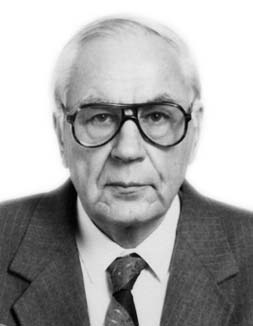

تاريخ الرياضيات

الاعداد و نظريتها

تاريخ التحليل

تار يخ الجبر

الهندسة و التبلوجي


الرياضيات في الحضارات المختلفة

العربية

اليونانية

البابلية

الصينية

المايا

المصرية

الهندية


الرياضيات المتقطعة

المنطق

اسس الرياضيات

فلسفة الرياضيات

مواضيع عامة في المنطق


الجبر

الجبر الخطي

الجبر المجرد

الجبر البولياني

مواضيع عامة في الجبر

الضبابية

نظرية المجموعات

نظرية الزمر

نظرية الحلقات والحقول

نظرية الاعداد

نظرية الفئات

حساب المتجهات

المتتاليات-المتسلسلات

المصفوفات و نظريتها

المثلثات


الهندسة

الهندسة المستوية

الهندسة غير المستوية

مواضيع عامة في الهندسة

التفاضل و التكامل


المعادلات التفاضلية و التكاملية

معادلات تفاضلية

معادلات تكاملية

مواضيع عامة في المعادلات


التحليل

التحليل العددي

التحليل العقدي

التحليل الدالي

مواضيع عامة في التحليل

التحليل الحقيقي

التبلوجيا

نظرية الالعاب

الاحتمالات و الاحصاء

نظرية التحكم

بحوث العمليات

نظرية الكم

الشفرات

الرياضيات التطبيقية

نظريات ومبرهنات


علماء الرياضيات

500AD

500-1499

1000to1499

1500to1599

1600to1649

1650to1699

1700to1749

1750to1779

1780to1799

1800to1819

1820to1829

1830to1839

1840to1849

1850to1859

1860to1864

1865to1869

1870to1874

1875to1879

1880to1884

1885to1889

1890to1894

1895to1899

1900to1904

1905to1909

1910to1914

1915to1919

1920to1924

1925to1929

1930to1939

1940to the present

علماء الرياضيات

الرياضيات في العلوم الاخرى

بحوث و اطاريح جامعية

هل تعلم

طرائق التدريس

الرياضيات العامة

نظرية البيان
Igor Rostislavovich Shafarevich
المؤلف:
Raymond Ayoub, Penn State University
المصدر:
Raymond Ayoub, Penn State University
الجزء والصفحة:
...
22-1-2018
617

Igor Shafarevich was born in 1923, the son of Rostislav Stepanovich and Yulia Yacovlevna. He is generally regarded as one of the leading contemporary mathematicians of Russia. He demonstrated mathematical gifts at an early age a gift which was nurtured by his parents. While still in his teens, he read mathematical treatises independently and at the age of 15 he was reading David Hilbert's celebrated report on the theory of Numbers. This was to have a long-lasting influence on his future mathematical activities. While a youth, he read advanced treatises in mathematics. Feeling uncertain of his understanding of the mathematical concepts, he asked senior mathematicians to test his grasp of the more recondite concepts. In addition, as a youth he was fascinated with history and read avidly in this subject. Indeed, it was a toss-up as to which subject he would pursue. His love of mathematics won out.
He was awarded the Doctor of science degree in 1946 at the age of 21 and became an associate at the Stecklov institute of the USSR Academy of Sciences. In addition, he taught at Moscow University.
His life and career however, are inextricably bound with the political upheaval that befell the Former Soviet Union. In 1972, he became an active participant in the group of dissidents of which Solzhenitsyn was a leading member. As a consequence, he was dismissed from the University of Moscow in 1975. In 1980, he published a book entitled The Socialist Phenomenon. This was an elaboration of his essay which first appeared in th collection titled From under the Rubble. He continued his political involvement by publishing the book entitled Russophobia in 1989. This proved offensive to many readers who saw in it elements of racism and it provoked extensive discussion coupled with censure. He wrote a defense of his right to express his ideas freely.
His mathematical research has been universally recognized. He made major contributions to the inverse problem of Galois theory as well as to class field theory, thereby solving some long outstanding conjectures. More recently he made important advances to algebraic geometry. His books and articles are widely read and acclaimed and indeed his work was recognized abroad by his appointment as a foreign member of the National Academy of Sciences of the USA in 1974.
He is outstanding as a lecturer and teacher and his mathematical writings are praised for their clarity and incisiveness. His students report that their association and supervision by Shafarevich were among the happiest of their professional careers.
In addition to his election to membership of the National Academy of Sciences of the USA, Shafarevich has been elected to the Academy of Sciences of the USSR, the American Academy of Arts and Sciences, the Royal Society of London, and the German Academy Leopoldina. Among the many prizes he has received, we mention the Lenin Prize and the Heinemann Prize of the Göttingen Academy of Sciences. The University of Paris awarded him an honorary doctorate.
Article by: Raymond Ayoub, Penn State University.
September 2009
 الاكثر قراءة في 1920to1924
الاكثر قراءة في 1920to1924
 اخر الاخبار
اخر الاخبار
اخبار العتبة العباسية المقدسة

الآخبار الصحية















 قسم الشؤون الفكرية يصدر كتاباً يوثق تاريخ السدانة في العتبة العباسية المقدسة
قسم الشؤون الفكرية يصدر كتاباً يوثق تاريخ السدانة في العتبة العباسية المقدسة "المهمة".. إصدار قصصي يوثّق القصص الفائزة في مسابقة فتوى الدفاع المقدسة للقصة القصيرة
"المهمة".. إصدار قصصي يوثّق القصص الفائزة في مسابقة فتوى الدفاع المقدسة للقصة القصيرة (نوافذ).. إصدار أدبي يوثق القصص الفائزة في مسابقة الإمام العسكري (عليه السلام)
(نوافذ).. إصدار أدبي يوثق القصص الفائزة في مسابقة الإمام العسكري (عليه السلام)


















